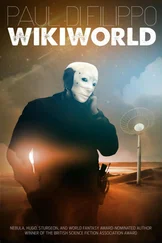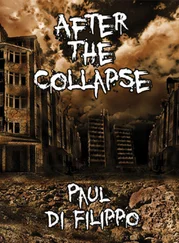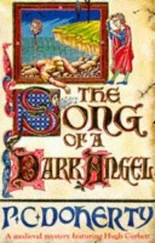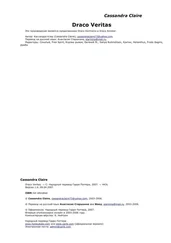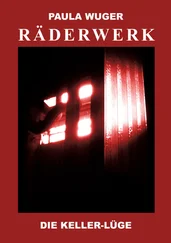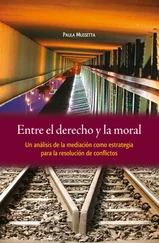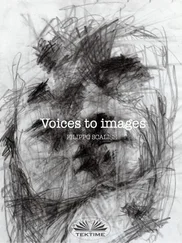Paul Filippo - Neutrino Drag
Здесь есть возможность читать онлайн «Paul Filippo - Neutrino Drag» весь текст электронной книги совершенно бесплатно (целиком полную версию без сокращений). В некоторых случаях можно слушать аудио, скачать через торрент в формате fb2 и присутствует краткое содержание. Жанр: Фантастика и фэнтези, на английском языке. Описание произведения, (предисловие) а так же отзывы посетителей доступны на портале библиотеки ЛибКат.
- Название:Neutrino Drag
- Автор:
- Жанр:
- Год:неизвестен
- ISBN:нет данных
- Рейтинг книги:5 / 5. Голосов: 1
-
Избранное:Добавить в избранное
- Отзывы:
-
Ваша оценка:
- 100
- 1
- 2
- 3
- 4
- 5
Neutrino Drag: краткое содержание, описание и аннотация
Предлагаем к чтению аннотацию, описание, краткое содержание или предисловие (зависит от того, что написал сам автор книги «Neutrino Drag»). Если вы не нашли необходимую информацию о книге — напишите в комментариях, мы постараемся отыскать её.
Neutrino Drag — читать онлайн бесплатно полную книгу (весь текст) целиком
Ниже представлен текст книги, разбитый по страницам. Система сохранения места последней прочитанной страницы, позволяет с удобством читать онлайн бесплатно книгу «Neutrino Drag», без необходимости каждый раз заново искать на чём Вы остановились. Поставьте закладку, и сможете в любой момент перейти на страницу, на которой закончили чтение.
Интервал:
Закладка:
Paul Di Filippo
Neutrino Drag
I know why the Sun doesn't work the way the scientists think it should.
Me and a guy who called himself Spacedog fucked it up back in 1951, racing our roadsters in a match of Cosmic Chicken out in space, closer'n Mercury to hell itself.
I never told a soul about that last grudge match between me and Spacedog. Who'd've believed me? Spacedog never returned to Earth to back my story up. And no one else was there to witness our race anyhow, except Stella Star Eyes. And she never says anything anytime, not even after fifty years with me.
But now that I'm an old, old guy likely to hit the Big Wall of Death and visit the Devil's pitstop soon, I figure I might as well try to tell the whole story the exact way it happened. Just in case Spacedog's car ever maybe starts eating up the Sun or something worse.
· · · · ·
I got demobbed in '46, went back home to San Diego and opened up a welding shop with the few thousand dollars I had saved and with the skills the Army had generously given me in exchange for nearly getting my ass shot up in a dozen European theaters from Anzio to Berlin. Palomar Customizing, Obdulio Benitez, proprietor, that was me. I managed to get some steady good-paying work right out of the holeshot, converting Caddies and Lincolns to hearses for the local funeral trade. The grim joke involved in this arrangement didn't escape me, since I still woke up more nights than not, drenched in sweat and yelling, memories of shellfire and blood all too vivid. If any of a hundred Nazi bullets had veered an inch, I would have already taken my own ride in a hearse—assuming any part of me had survived to get bagged—and never been here building the corpse wagons.
One of the first helpers I hired at my shop was this high-school kid, Joaquin Arnett.
You heard me right, Joaquin Arnett, the legendary leader of the Bean Bandits, that mongrel pack of barrio-born hotrodders who started out by tearing up the California racing world like Aztecs blew through captives, and then went on to grab national honors from scores of classier white-bread teams across the nation. By the time he retired from racing in the Sixties, Joaquin had racked up more trophies and records than almost any other driver, and fathered two sons to carry on his dream.
But back in the late Forties, all that was still in the future. I hired a wiry, smiling, wired kid with skin a little lighter than my own, a kid with no rep yet, but just a mania for cars and racing.
Joaquin got his start picking up discarded car parts—coils, magnetos—and fixing them. He had taught himself to drive at age nine. By the time he got to my shop, he'd been bending iron on his own for several years, making chassis after chassis out of scrap and dropping flatheads in front, fat skins in back and deuce bodies on top. Once he got his hands on my shop's equipment, he burst past all the old barriers that had stopped him from making his dreams really come true. The railjobs and diggers he began to turn out in his off-hours were faster and hotter than anything else on the streets or the tracks.
Joaquin had been driving for the Road Runners and the Southern California Roadster Club since 1948. But when 1951 rolled around, he decided he wanted to start his own team. He recruited a bunch of childhood buddies—Carlos Ramirez, Andrew Ortega, Harold Miller, Billy Glavin, Mike Nagem, plus maybe twenty others—and they became the Bean Bandits, a name that picked up on the taunts of "Beaners!" they heard all the time and made the slur into a badge of ethnic pride.
When Joaquin first came to work for me, I was driving a real pig, something the legendary little old lady from Pasadena would've turned her nose up at. An unmodified '32 Packard I had picked up cheap before the war, which had subsequently sat on its rims in my parents' garage for five years while I was overseas. I plain didn't care much about cars at that point. They were just transportation, something to get me and Herminia—Herminia Ramirez, a distant cousin of Carlos's—around town on a date.
But working side by side with Joaquin, watching the fun he had putting his rods together, was contagious. The customizing and racing bugs bit me on the ass, one on each cheek, and never let go. Soon on weekends and nights I was elbow-deep in the guts of a '40 Oldsmobile, patching in a Cadillac engine that was way too much power for the streets, but was just right for the dry lakes.
The Bean Bandits, you see, raced the cars they created at a couple of places. Paradise Mesa, the old airfield outside the city that was our home track, and the dry lakebeds of El Mirage and Muroc. There the drivers could cut loose without worrying about citizens or cops or traffic lights, focusing on pure speed.
When I started running my new Olds—painted glossy pumpkin orange with black flames, and its name, El Tigre, lettered beautifully across both front fenders—first in trials with the Bean Bandits and then against drivers from other clubs, I found that my nightmares started to go away. Not completely, but enough. That sweet deal alone would have hooked me on racing forever, if all the other parts of it—the sound, the speed, the thrills, the glory—hadn't already done the trick.
The real excitement started when we discovered nitro. That was nitromethane, a gasoline alternative that did for engines what the sight of Wile E. Coyote did for the Road Runner. At first we thought nitro was more volatile than it actually was, and we carried it to meets in big carboys swaddled in rags. "Stand back! This could blow any second!" Scared the shit out of the competition, until they got hip to nitro too. And eventually, when we discovered the shitty things pure nitro did to our engines, we began to cut it fifty-fifty with regular fuel. Still, plenty of extra kick remained, and nitro let us get closer and closer to the magic number of 150 mph with every improvement we made.
I remember Joaquin boasting to me one day, "Papa Obie, soon enough we're gonna be as fast as them damn new UFO things people are talking about."
I don't feel like I was ever a real card-carrying member of the Bean Bandits. I never wore one of their shirts with their silly cartoon on it—a Mexican jumping bean with sombrero, mask and wheels—and I never lined up at the staging lights known as the Christmas Tree with them in any for-the-book races, just the unofficial drags. The main thing that kept me out of the club—in my own mind anyhow—was my age.
When I left the service I was already twenty-six years old, and by 1951 I had crossed that big red line into my thirties. Joaquin and all his buddies were a lot younger than me. They liked to tease me, calling me "Papa Obie" and names like that. Not that they ever discriminated against anyone, on any basis. Mostly Hispanics, the Bandits had members who were Anglo, Lebanese, Japanese and Filipino. They would've took me on in a heartbeat. But my concerns weren't the same as theirs. They had nothing in mind but kicks. I had a business to run, and was thinking in a vague way about marrying Herminia and settling down.
Still, I hung out with the Bandits a lot and never felt like they held me at arm's length. Practically every weekend in 1951, you could find me behind the wheel of El Tigre, hauling ass down three dusty miles of dry lake bottom trial after trial, the nitro fumes making my eyes water and nose burn, smiling when I beat someone, scowling when I got beaten and already planning refinements to my car.
Yeah, that was my routine and my pleasure all right, and at the time I even thought it might last forever.
Until Spacedog and Stella Star Eyes showed up.
· · · · ·
That Saturday afternoon at Paradise Mesa the sun seemed to burn hotter than I'd ever known it to shine before, even in California. I had gone through about six cans of Nesbitt's Orange Drink between noon and three, a few gulps used to wash down the tortillas we had bought at our favorite stand on the Pacific Coast Highway on our way up here.
Читать дальшеИнтервал:
Закладка:
Похожие книги на «Neutrino Drag»
Представляем Вашему вниманию похожие книги на «Neutrino Drag» списком для выбора. Мы отобрали схожую по названию и смыслу литературу в надежде предоставить читателям больше вариантов отыскать новые, интересные, ещё непрочитанные произведения.
Обсуждение, отзывы о книге «Neutrino Drag» и просто собственные мнения читателей. Оставьте ваши комментарии, напишите, что Вы думаете о произведении, его смысле или главных героях. Укажите что конкретно понравилось, а что нет, и почему Вы так считаете.

